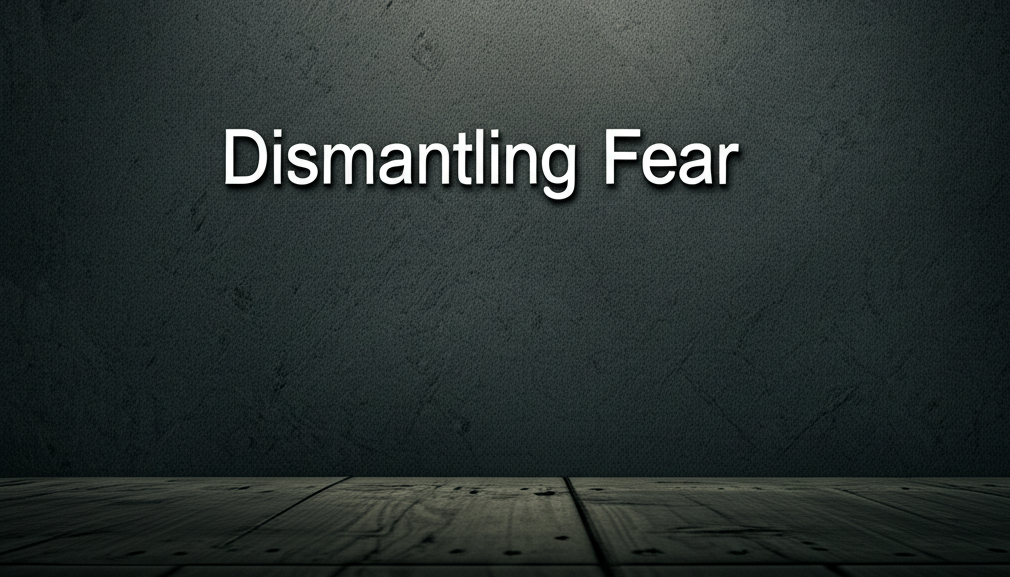Let’s rewind the clock to 2015. I was behind the bar at Café Andaluz in Aberdeen, slinging cocktails and pretending I had it all under control. But behind that cool bartender exterior? A storm was brewing. Stress, anxiety, and this nagging sense that something was seriously off—all of it silently stacking up. And I had no clue why.
So, what did I do about it? Like a lot of us, I turned to alcohol. I drank… a lot. Then came the day I lost my phone. It sounds small, but it was kind of the tipping point. I remember thinking, “You know what? Screw it. Maybe I don’t need a phone. Maybe going off-grid will help me waste less time and finally hit those fitness goals I keep dreaming about.”
But that wasn’t clarity—it was escape.
When the Walls Started Closing In
I kept going to work, kept pretending everything was fine. But I felt a shift. People who once smiled at me now looked… indifferent. Or maybe it was just in my head? The drugs I had once leaned on to take the edge off had stopped working. I was spiraling. My confidence? Nonexistent. My self-worth? In the gutter.
Behind the bar, I was making mistakes—lots of them. The team I once had laughs with? They were annoyed, and it showed. One of them finally snapped and said what I’d been dreading: “Vytas, what the f*ck is wrong with you!?”
It hit me hard.
And then, because I was still high on my “off-the-grid” philosophy, I missed my third staff meeting. Strike three. Cesar, our general manager, was pissed. The other managers, disappointed. They took away my tips, said I didn’t care when others clearly did. That stung. Deep. I started to believe they hated me, that they were just waiting for the right moment to cut me loose.
So, I did what anyone drowning in their own shame does—I avoided them. I dodged Cesar, sidestepped conversations, ducked into corners. I was shutting down.
Rock Bottom on a Busy Night
Fast forward to one night after hanging out with the crew. I was back at the bar, working a shift, and everything went wrong. I could feel it—their frustration, their impatience. My hands were trembling. I couldn’t think straight. Every mistake echoed in my head like a personal insult.
“You f**ked up again.”
“People are watching.”
“You’re a failure.”
That mental loop didn’t quit. And it had been months. I had read over 100 books on self-help, confidence, personal development… you name it. And yet I was worse off than when I started.
That night, I finally said, “Enough.” Not out loud, but in the fiery, exhausted way you do when you’ve got nothing left to lose. I wasn’t hopeless—I was angry. But this time, I wasn’t mad at the world. I was mad enough to change.
The Night I Decided to Understand Fear
So I power-walked home—furious, focused, and fed up. I lived just five minutes away, but it felt like I was sprinting. I burst into my room, slammed the door, grabbed a notebook, and practically shouted to myself:
“WHAT IS FEAR?”
No more pretending. No more blaming. It was time to get real. I took a herbal supplement to calm the chaos in my brain and started following my thoughts like a detective chasing a lead.
Breaking Down Fear—One Spider at a Time
Now, I’m not afraid of spiders, but they’re a universal “fear” symbol, so that’s where I started.
I asked myself, “If there’s no spider in the room, do you feel fear?” Of course not. But when one’s there? Boom—panic. So what is it about that spider that triggers the reaction?
It’s not the spider. It’s the thoughts about the spider.
I kept digging: Fear isn’t just about what’s happening. It’s about resisting it. Fighting it. Wishing something—anything—was different than it is. That’s when I remembered a quote I’d seen over and over in those 100+ books:
“Whatever you resist, persists. Whatever you accept, dissolves.”
Connecting the Dots
At work, what was I resisting? Reality.
I wanted to be confident—not anxious. I wanted to be perfect—not mistake-prone. I wanted to be liked—not silently judged.
So, I wrote it down:
Fear = Wanting something to be different than it is.
And that’s when it hit me. Every ounce of pain, every anxious breath, every moment of shame—it was all rooted in nonacceptance. I wasn’t just afraid of messing up. I was afraid of being me, as I was, in that moment.
A Turning Point: The Birth of Clarity
That night became the first true turning point in my life. It wasn’t some big motivational seminar or YouTube guru that changed me. It was a notebook, a quiet room, and a raw conversation with myself.
Suddenly, the books I’d been reading weren’t just words anymore—they were puzzle pieces. And in that moment, they all fit.
This wasn’t just insight. It was the foundation for something much bigger. That single realization, that fear was tied to resistance, would become the seed of what I later called the QPH Method—a method that taught me how to actually change my beliefs, not just slap a motivational quote on top of them.
Final Thoughts: Fear Isn’t the Enemy
Here’s the truth: fear doesn’t mean you’re broken. It means you’re resisting reality. And once you see it for what it is—not a monster, but a signal—you can dismantle it. Bit by bit.
I’m not saying the road’s easy. Or that I never feel fear anymore. I do. But now, I understand it. I don’t fight it. I work with it.
So if you’re stuck, overwhelmed, drowning in the same loop like I was, know this:
The breakthrough isn’t out there—it’s already in you. Waiting.

Leave a Reply